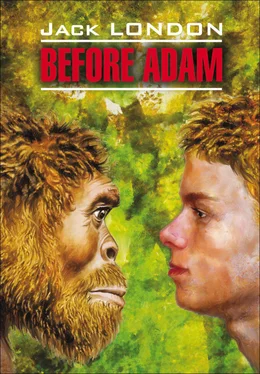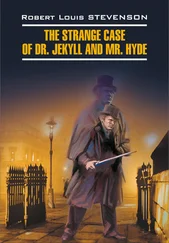At the sight of him, helpless, within the bars of his cage, I became enraged. I gritted my teeth at him, danced up and down, screaming an incoherent mockery and making antic faces. He responded, rushing against the bars and roaring back at me his impotent wrath. Ah, he knew me, too [3] he knew me, too – ( разг. ) он тоже меня узнал
, and the sounds I made were the sounds of old time and intelligible to him.
My parents were frightened. “The child is ill,” said my mother. “He is hysterical,” said my father. I never told them, and they never knew. Already had I developed reticence concerning this quality of mine, this semi-disassociation of personality as I think I am justified in calling it.
I saw the snake-charmer, and no more of the circus did I see that night. I was taken home, nervous and overwrought, sick with the invasion of my real life by that other life of my dreams.
I have mentioned my reticence. Only once did I confide the strangeness of it all to another. He was a boy – my chum; and we were eight years old. From my dreams I reconstructed for him pictures of that vanished world in which I do believe I once lived. I told him of the terrors of that early time, of Lop-Ear and the pranks we played, of the gibbering councils, and of the Fire People and their squatting places.
He laughed at me, and jeered, and told me tales of ghosts and of the dead that walk at night. But mostly did he laugh at my feeble fancy. I told him more, and he laughed the harder. I swore in all earnestness that these things were so, and he began to look upon me queerly. Also, he gave amazing garblings of my tales to our playmates, until all began to look upon me queerly.
It was a bitter experience, but I learned my lesson. I was different from my kind. I was abnormal with something they could not understand, and the telling of which would cause only misunderstanding. When the stories of ghosts and goblins went around, I kept quiet. I smiled grimly to myself. I thought of my nights of fear, and knew that mine were the real things – real as life itself, not attenuated vapors and surmised shadows.
For me no terrors resided in the thought of bugaboos and wicked ogres. The fall through leafy branches and the dizzy heights; the snakes that struck at me as I dodged and leaped away in chattering flight; the wild dogs that hunted me across the open spaces to the timber – these were terrors concrete and actual, happenings and not imaginings, things of the living flesh and of sweat and blood. Ogres and bugaboos and I had been happy bed-fellows, compared with these terrors that made their bed with me throughout my childhood, and that still bed with me, now, as I write this, full of years.
I have said that in my dreams I never saw a human being. Of this fact I became aware very early, and felt poignantly the lack of my own kind. As a very little child, even, I had a feeling, in the midst of the horror of my dreaming, that if I could find but one man [4] if I could find but one man – ( разг. ) если бы я мог найти хоть одного человека
, only one human, I should be saved from my dreaming, that I should be surrounded no more by haunting terrors. This thought obsessed me every night of my life for years – if only I could find that one human and be saved!
I must iterate that I had this thought in the midst of my dreaming, and I take it as an evidence of the merging of my two personalities, as evidence of a point of contact between the two disassociated parts of me. My dream personality lived in the long ago, before ever man, as we know him, came to be; and my other and wake-a-day personality projected itself, to the extent of the knowledge of man’s existence, into the substance of my dreams.
Perhaps the psychologists of the book will find fault with my way of using the phrase, “disassociation of personality.” I know their use of it, yet am compelled to use it in my own way in default of a better phrase [5] in default of a better phrase – ( уст. ) за отсутствием лучшего выражения
. I take shelter behind the inadequacy of the English language. And now to the explanation of my use, or misuse, of the phrase.
It was not till I was a young man, at college, that I got any clew to the significance of my dreams, and to the cause of them. Up to that time they had been meaningless and without apparent causation. But at college I discovered evolution and psychology, and learned the explanation of various strange mental states and experiences. For instance, there was the falling-through-space dream – the commonest dream experience, one practically known, by firsthand experience, to all men.
This, my professor told me, was a racial memory. It dated back to our remote ancestors who lived in trees. With them, being tree-dwellers, the liability of falling was an ever-present menace. Many lost their lives that way; all of them experienced terrible falls, saving themselves by clutching branches as they fell toward the ground.
Now a terrible fall, averted in such fashion, was productive of shock. Such shock was productive of molecular changes in the cerebral cells. These molecular changes were transmitted to the cerebral cells of progeny, became, in short, racial memories. Thus, when you and I, asleep or dozing off to sleep, fall through space and awake to sickening consciousness just before we strike, we are merely remembering what happened to our arboreal ancestors, and which has been stamped by cerebral changes into the heredity of the race.
There is nothing strange in this, any more than there is anything strange in an instinct. An instinct is merely a habit that is stamped into the stuff of our heredity, that is all. It will be noted, in passing [6] It will be noted, in passing – ( разг. ) Замечу походя (между делом)
, that in this falling dream which is so familiar to you and me and all of us, we never strike bottom. To strike bottom would be destruction. Those of our arboreal ancestors who struck bottom died forthwith. True, the shock of their fall was communicated to the cerebral cells, but they died immediately, before they could have progeny. You and I are descended from those that did not strike bottom; that is why you and I, in our dreams, never strike bottom.
And now we come to disassociation of personality. We never have this sense of falling when we are wide awake. Our wake-a-day personality has no experience of it. Then – and here the argument is irresistible – it must be another and distinct personality that falls when we are asleep, and that has had experience of such falling – that has, in short, a memory of past-day race experiences, just as our wake-a-day personality has a memory of our wake-a-day experiences.
It was at this stage in my reasoning that I began to see the light. And quickly the light burst upon me with dazzling brightness, illuminating and explaining all that had been weird and uncanny and unnaturally impossible in my dream experiences. In my sleep it was not my wake-a-day personality that took charge of me; it was another and distinct personality, possessing a new and totally different fund of experiences, and, to the point of my dreaming, possessing memories of those totally different experiences.
What was this personality? When had it itself lived a wake-a-day life on this planet in order to collect this fund of strange experiences? These were questions that my dreams themselves answered. He lived in the long ago, when the world was young, in that period that we call the Mid-Pleistocene [7] Mid-Pleistocene – ( геол. ) средний плейстоцен (период истории развития земли, который начался около миллиона лет назад и продолжался 800 тысяч лет)
. He fell from the trees but did not strike bottom. He gibbered with fear at the roaring of the lions. He was pursued by beasts of prey, struck at by deadly snakes. He chattered with his kind in council, and he received rough usage at the hands of the Fire People in the day that he fled before them.
Читать дальше












